
On Tuesday the 21st February 2017 Interreg will be visiting BU 10.30-16.00 at the EBC.
Interreg is an economic development programme that funds innovation, low carbon, climate change and resource efficiency projects which take place across EU countries and regions. These projects aim to find common solutions to common problems which exist in multiple countries. BU has been awarded and is involved in projects from the Channel, 2 Seas and Atlantic schemes.
This event is aimed at people in the Dorset, Hampshire, Wiltshire and Isle of Wight areas and nearby cities that are new to the Interreg programme, who are confused about which programme is which, or who are just beginning to develop a project idea.
For people who are drafting an application, or who want feedback on an application they have submitted, the programmes offer other workshops. For example the 2Seas cross border programme will run a Step 1 applicants’ workshop on 27th January 2017 in Bristol, and a step 2 applicants’ workshop on 13th February, also in Bristol. These are open to all applicants in the eligible area. See www.interreg2seas.eu for further information.
Our event will be split into two parts.
The first part will include;
- An introduction to Interreg: The Interreg programmes, how they are different from each other and from other EU funds. This will also cover the types of project that are funded.
- Tips on how to develop a good Interreg project: Lessons from the selection process by Sallyann Stephen from The Department for Communities and Local Government, based on her experience on the Interreg project selection panel.
- How to apply: the two stage process going through the selection criteria and the key documents involved.
The second part will have a more informal set up with interactive exercises to get you thinking, collaborating and developing project ideas.
Throughout the afternoon there will also be one to one appointments on specific project ideas with one of the Interreg facilitators. This is an excellent opportunity to develop a project and get feedback from the experts. If you would like to book a one to one session you will need to email Dianne Goodman at dgoodman@bournemouth.ac.uk. Places will be allocated on a first come first served basis, if you have specific preferences on the time we recommend you contact Dianne as soon as possible so your request can be accommodated.
Please note that to attend the one to one session you are required to send a 1 page project summary to Paula MacLachlan, 2 Seas Territorial Facilitator p.maclachlan@interreg2seas.eu no later than 14th February. Apologies, without this ahead of time they will be unable to prepare adequately for your personal one to one session.
The presentation is open also to the regional university network, known as the M3 group, which includes: AUB, Bournemouth, Brighton, Portsmouth, Reading, Southampton, Southampton Solent, Surrey, Sussex and Winchester. All academics and research offices are welcome to attend. BU will host a networking lunch for all attendees. This is a great opportunity to learn about Interreg and how you can strengthen your applications for funding. If you would like to attend, then please book through Eventbrite.
For further information on this event please contact: RKEDevFramework@bournemouth.ac.uk
*Please note as Interreg programmes operate in set geographical areas you must check the programme websites to ensure eligibility.
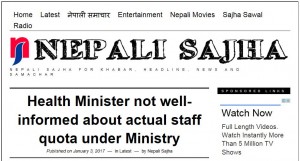 Yesterday’s health promotion dissemination meeting in Kathmandu has been widely reported in the national media in Nepal. Some of the national media focused largely (but not solely) on the words of the Minister of Health Mr Thapa, whilst the television news reports included the organisers and presenters at the event. The Green Tara Nepal Health Promotion Dissemination conference in Kathmandu was supported by the Centre for Midwifery, Maternal & Perinatal Health at BU and Liverpool John Moores University (LJMU) and Green Tara Trust UK (a Buddhist charity based in London). BU has been working with Green Tara Nepal for the past eight years on a number of maternal health promotion projects in rural Nepal.
Yesterday’s health promotion dissemination meeting in Kathmandu has been widely reported in the national media in Nepal. Some of the national media focused largely (but not solely) on the words of the Minister of Health Mr Thapa, whilst the television news reports included the organisers and presenters at the event. The Green Tara Nepal Health Promotion Dissemination conference in Kathmandu was supported by the Centre for Midwifery, Maternal & Perinatal Health at BU and Liverpool John Moores University (LJMU) and Green Tara Trust UK (a Buddhist charity based in London). BU has been working with Green Tara Nepal for the past eight years on a number of maternal health promotion projects in rural Nepal.  Overall the media in Nepal had difficulty understanding the notion of ‘health promotion’, therefore many journalists focused on health services as this was mentioned by the Minister of Health.
Overall the media in Nepal had difficulty understanding the notion of ‘health promotion’, therefore many journalists focused on health services as this was mentioned by the Minister of Health.
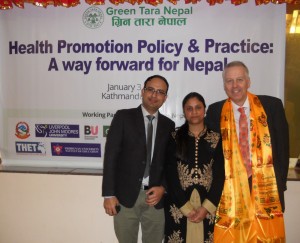
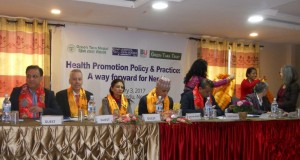
 I have recently joined the Research and Knowledge Exchange Office (RKEO) as the Research Facilitator for the Faculty of Health and Social Sciences (FHSS) and the Faculty of Science and Technology (FST), covering Jenny Roddis’ maternity leave.
I have recently joined the Research and Knowledge Exchange Office (RKEO) as the Research Facilitator for the Faculty of Health and Social Sciences (FHSS) and the Faculty of Science and Technology (FST), covering Jenny Roddis’ maternity leave.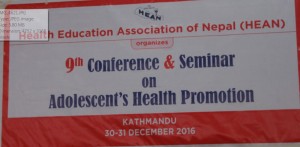 Yesterday Prof. Edwin van Teijlingen from BU’s Centre for Midwifery, Maternal & Perinatal Health (CMMPH) spoke at the 9th Conference and Seminar on Adolescent’s Health Promotion in Kathmandu. This event was organised by the Health Education Association of Nepal (HEAN). The first keynote speech ‘Adolescent’s Health Promotion: Global Perspectives‘ was presented by BU Visiting Faculty Prof. Padam Simkhada (based at Liverpool John Moores University) on behalf of his BU co-authors Dr. Pramod Regmi and Prof. Edwin van Teijlingen. The second keynote speech ‘Global Health Promotion Approach‘ was presented jointly by Prof. van Teijlingen and Green Tara Nepal country director Mr. Ram Chandra Silwal on behalf of their collaborators Prof. Simkhada and Green Tara Trust, UK (Dr. Jane Stephens and Ms. Colette Fanning).
Yesterday Prof. Edwin van Teijlingen from BU’s Centre for Midwifery, Maternal & Perinatal Health (CMMPH) spoke at the 9th Conference and Seminar on Adolescent’s Health Promotion in Kathmandu. This event was organised by the Health Education Association of Nepal (HEAN). The first keynote speech ‘Adolescent’s Health Promotion: Global Perspectives‘ was presented by BU Visiting Faculty Prof. Padam Simkhada (based at Liverpool John Moores University) on behalf of his BU co-authors Dr. Pramod Regmi and Prof. Edwin van Teijlingen. The second keynote speech ‘Global Health Promotion Approach‘ was presented jointly by Prof. van Teijlingen and Green Tara Nepal country director Mr. Ram Chandra Silwal on behalf of their collaborators Prof. Simkhada and Green Tara Trust, UK (Dr. Jane Stephens and Ms. Colette Fanning).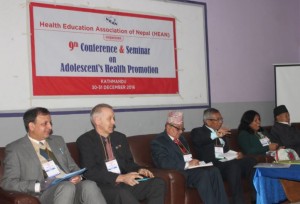

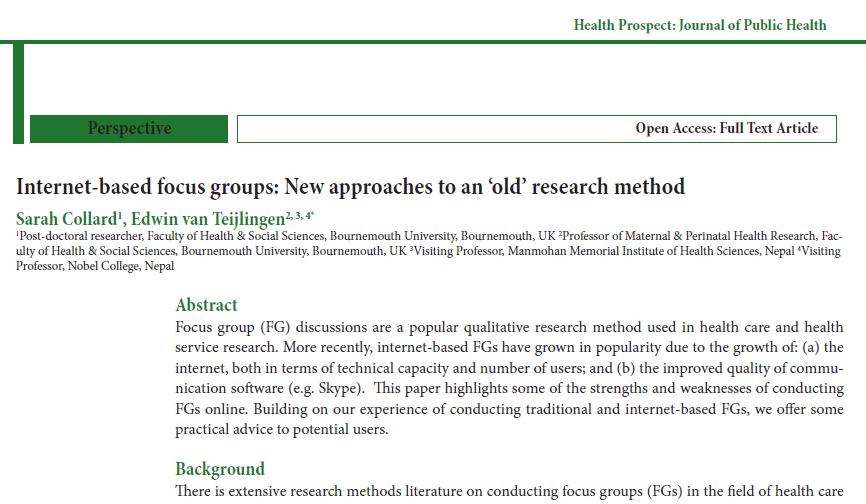

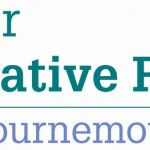
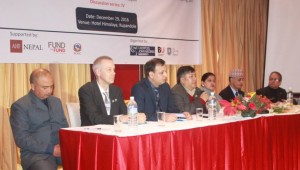
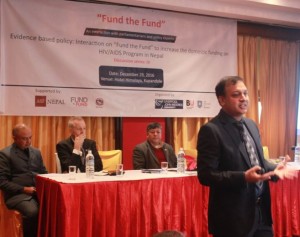
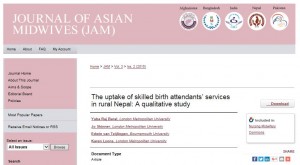
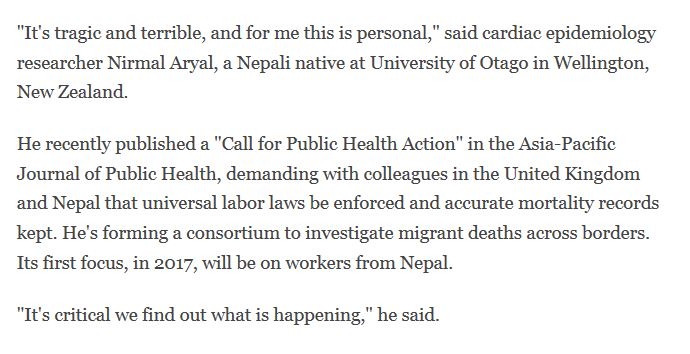
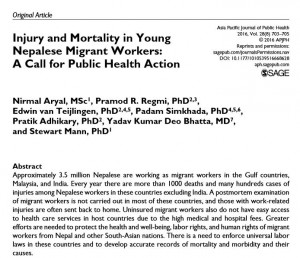

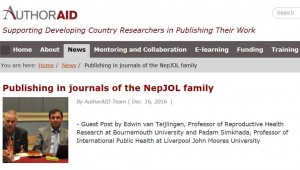
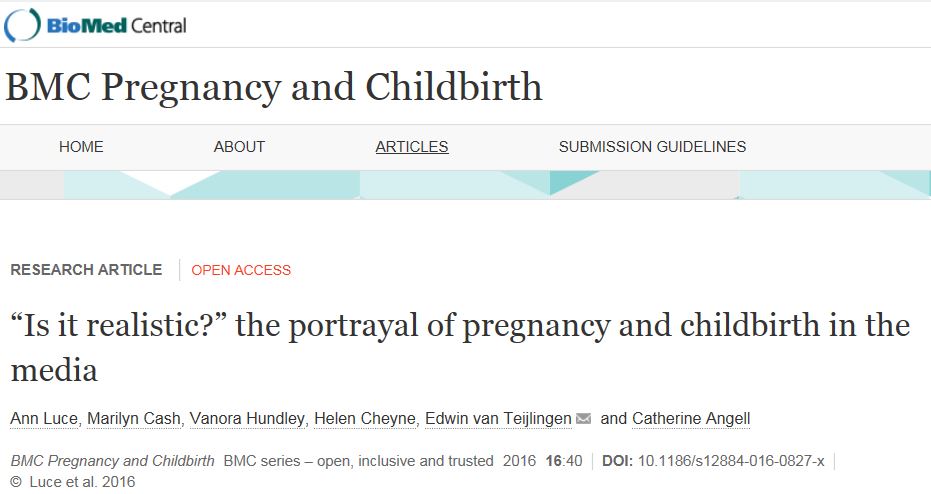


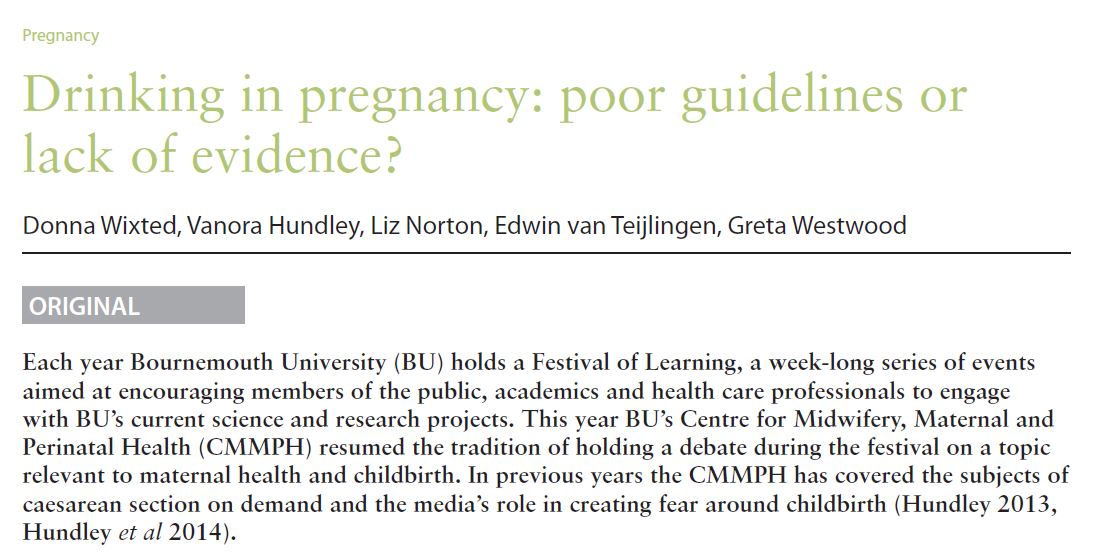
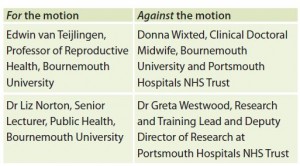
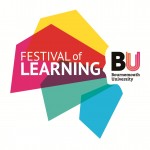
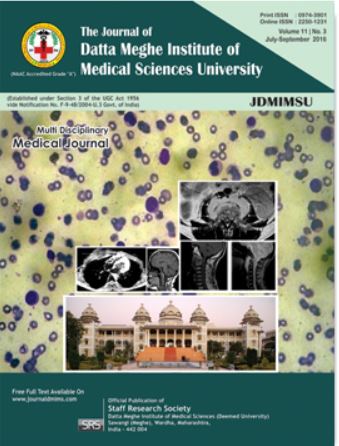
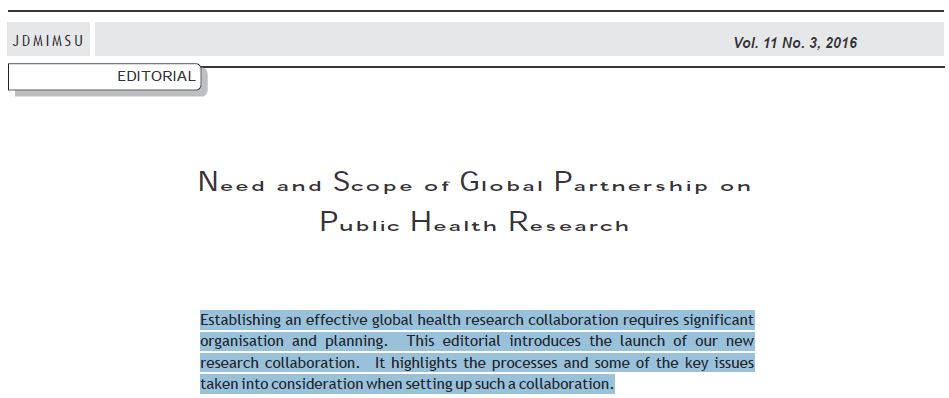
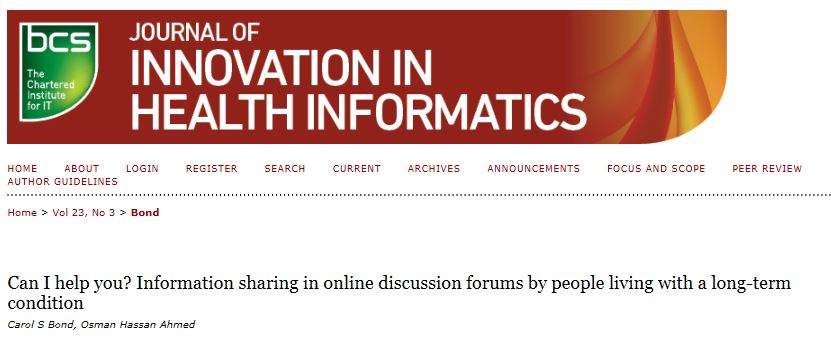
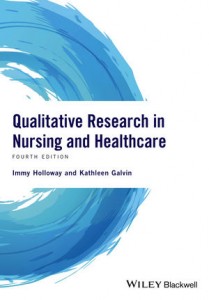
 The amount raised will help to either
The amount raised will help to either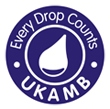 If you would like to learn more about donor milk visit the website of the
If you would like to learn more about donor milk visit the website of the 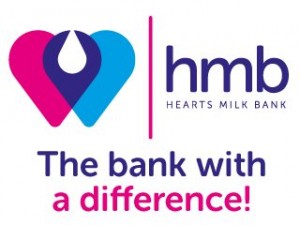 If you would like to learn more about the
If you would like to learn more about the 










 Beyond Academia: Exploring Career Options for Early Career Researchers – Online Workshop
Beyond Academia: Exploring Career Options for Early Career Researchers – Online Workshop UKCGE Recognised Research Supervision Programme: Deadline Approaching
UKCGE Recognised Research Supervision Programme: Deadline Approaching SPROUT: From Sustainable Research to Sustainable Research Lives
SPROUT: From Sustainable Research to Sustainable Research Lives BRIAN upgrade and new look
BRIAN upgrade and new look Seeing the fruits of your labour in Bangladesh
Seeing the fruits of your labour in Bangladesh ECR Funding Open Call: Research Culture & Community Grant – Apply now
ECR Funding Open Call: Research Culture & Community Grant – Apply now ECR Funding Open Call: Research Culture & Community Grant – Application Deadline Friday 12 December
ECR Funding Open Call: Research Culture & Community Grant – Application Deadline Friday 12 December MSCA Postdoctoral Fellowships 2025 Call
MSCA Postdoctoral Fellowships 2025 Call ERC Advanced Grant 2025 Webinar
ERC Advanced Grant 2025 Webinar Update on UKRO services
Update on UKRO services European research project exploring use of ‘virtual twins’ to better manage metabolic associated fatty liver disease
European research project exploring use of ‘virtual twins’ to better manage metabolic associated fatty liver disease